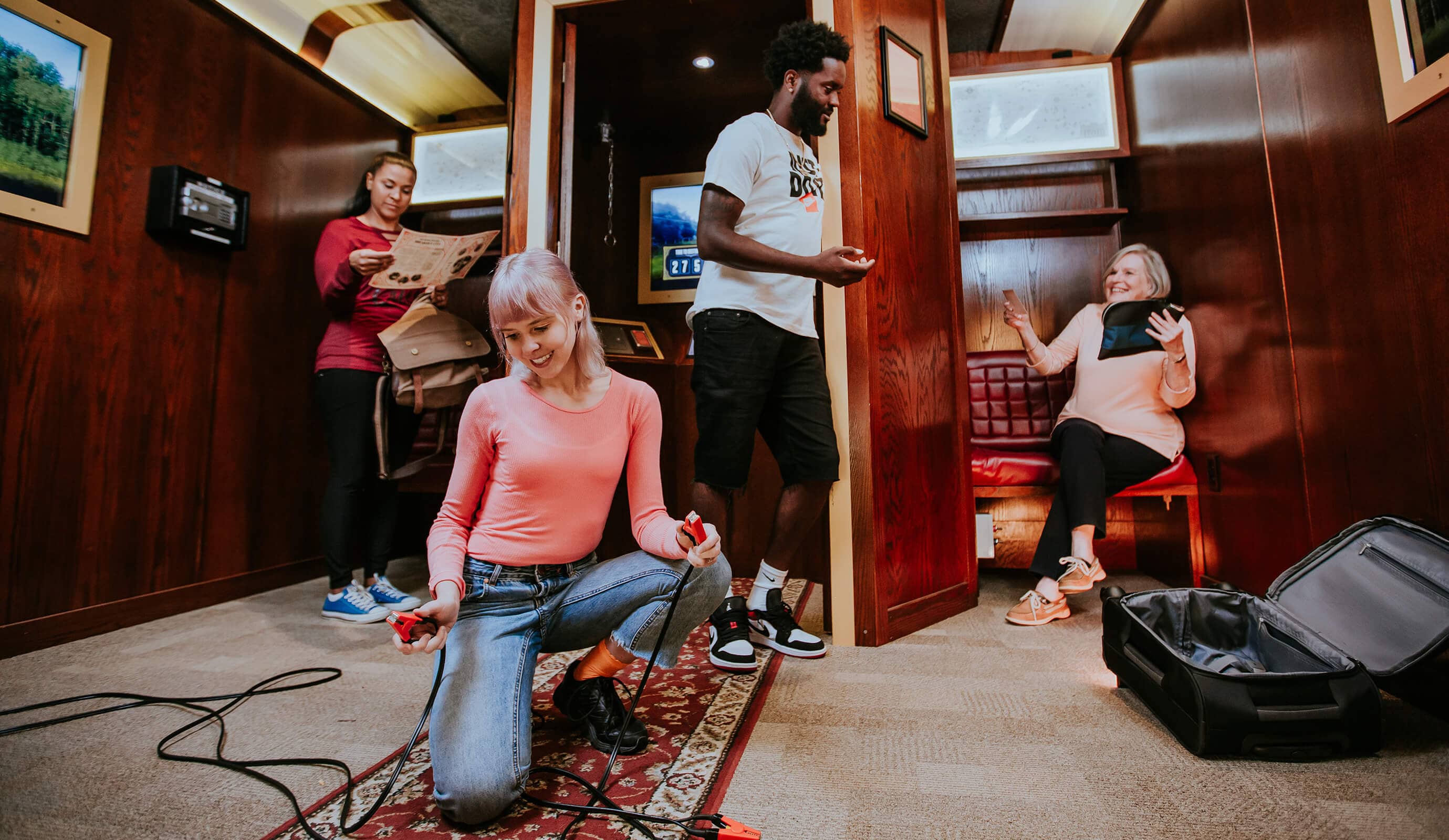Enjoyable and Testing Escape Room-- Strategy Your Following Adventure
Enjoyable and Testing Escape Room-- Strategy Your Following Adventure
Blog Article
Group Approaches: Just How to Team up Effectively in a Retreat Space
Teams must proactively pay attention to each participant's insights, designate roles that straighten with specific strengths, and keep normal check-ins to guarantee focus and avoid redundancy. By fostering a setting that values communication and adaptability, groups can dramatically increase their efficiency and success rates.
Establish Clear Communication
To assist in clear interaction, it is vital to designate a central factor of call for information circulation. Brief, focused updates from each group member can keep the group educated without overwhelming them with info.

Assign Duties Strategically
While clear communication sets the foundation for efficient synergy, appointing duties purposefully ensures that each employee's staminas are made use of efficiently. In an escape space circumstance, the time-sensitive and complex nature of difficulties demands a well-organized strategy to job delegation. By recognizing and leveraging private expertises, teams can maximize their analytic capacities and boost general performance.
First, examine the distinct skills and qualities of each participant. For instance, a person with a keen eye for detail might master locating hidden items, while a sensible thinker could be better suited to fixing challenges - best escape room. It's equally crucial to have a leader that can manage development, take care of the timeline, and make definitive phone calls when necessary. This duty usually needs solid business and social abilities.
Second, ensure that duties are adaptable and adaptable. As new obstacles emerge, the team must have the ability to pivot, reallocating tasks as called for. This versatility aids keep momentum and avoids traffic jams that might occur due to rigid role tasks.
Inevitably, a strategic approach to role assignment not only makes best use of the staminas of each team member however also promotes a cohesive atmosphere, driving the team towards a successful retreat.
Make Use Of Diverse Skills
Recognizing and using the diverse skills within your team can dramatically raise your efficiency in a retreat space. Each employee brings unique toughness to the table, and successfully leveraging these capabilities can expedite problem-solving and improve overall efficiency. A group participant with solid logical skills could succeed at understanding intricate codes or patterns, while an additional with keen empirical abilities might promptly find surprise hints that others might forget.
Urge team members to articulate their understandings and concepts without delay, guaranteeing that all potential services are taken into consideration. In addition, designating tasks that align with each member's staminas can stop bottlenecks and make sure that development is constant.
Moreover, diversity in skills commonly go now converts to diversity in believing designs, which is very useful in an escape space setup. While some challenges might require logical thinking and accuracy, others might take advantage of creative and lateral reasoning. By recognizing and leveraging this variety, teams can address a more comprehensive series of challenges better, therefore enhancing their possibilities of an effective escape.
Manage Time Efficiently

First, assign first mins for a fast study of the room. Determine noticeable problems and divide tasks based upon employee' strengths, guaranteeing that nobody is still. Establish internal time checkpoints to examine progression regularly; for instance, aim to have half the challenges fixed by the mid-point of the video game. This method can aid maintain the team concentrated and avoid time from escaping unnoticed.
In addition, prevent passage vision. If a problem is taking also long, revolve employee or move on to another challenge, returning later with fresh perspectives. Interaction is vital-- keep every person upgraded on solved challenges and staying tasks to prevent repetitive initiatives.
Last but not least, utilize any kind of hints or hints sparingly yet purposefully - best escape room. Understanding when to ask for assistance can save important time. By sticking to these time administration concepts, groups can significantly improve their possibilities of an effective and satisfying getaway area experience
Debrief and Reflect
Reflection is a necessary element of group development and enhancement in the context of escape rooms. When the challenge is finished, whether efficiently or not, it is essential for the group to involve in an organized debriefing session. This procedure enables employee to evaluate their efficiency, recognize strengths, and pinpoint locations for renovation.
Start the debrief by reviewing what went well. Highlight particular circumstances of reliable interaction, analytic, and cooperation. Identifying these favorable actions enhances them and motivates their rep in future difficulties.
Following, resolve the great post to read barriers encountered. Go over minutes of confusion, miscommunication, or inadequate approaches. Encourage an open and positive discussion where group members can share their point of views without worry of criticism. This promotes a culture of constant improvement and understanding.
Final Thought
Finally, effective cooperation in a retreat space is predicated upon clear communication, calculated role projects, the effective use of diverse skills, and efficient time monitoring. Regular check-ins and organized debriefings are important for preserving focus and fostering continual renovation. By creating a natural and flexible group atmosphere, the probability of efficiently fixing problems and achieving the purpose of getting away the space is significantly boosted. This method not only ensures success yet likewise advertises collective growth and understanding.
Report this page